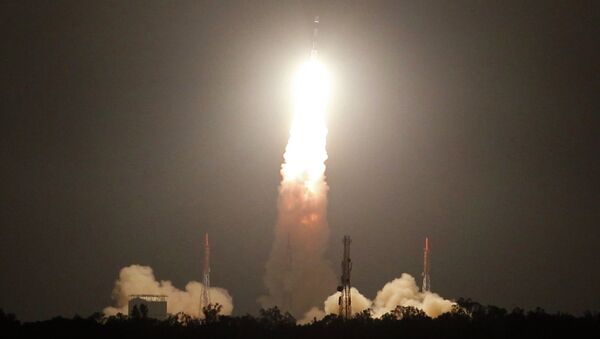New Delhi (Spuntik) — Ghana recently launched its first ever satellite, GhanaSat-1, from NASA's International Space Station. A group of students at Ghana's All Nations University (ANU) built the satellite, which weighs about 1 kg and will orbit 400kms above the earth. Launched last month, it will help Ghana to monitor its coastline as well as help other activities to boost e-governance.
The ground station at the ANU's laboratory is awaiting first signals from the satellite. The $500,000 project that began in 2015 has the support of the Japan Aerospace Exploration Agency.
"The launch will help us train the upcoming generation on how to apply satellites in different activities around our region. For instance, [monitoring] illegal mining is one of the things we are looking to accomplish," the BBC quoted Richard Damoah, director of the Space Systems Technology Laboratory at the ANU, as saying.
Ghana is now reportedly planning to launch GhanSat 2 into the space, equipping it with better cameras and using it for monitoring deforestation and the usage of water in the country.
ISRO, which created history by launching more than 100 satellites earlier this year, sees immense business opportunities in such endeavors by African countries, according to experts.
"ISRO definitely aims to commercially tap the multi-billion dollar global space market as well, which will grow only as nations realise the usefulness of satellites for Earth observation, telecommunications and a host of other objectives. When it comes to satellite launches, ISRO has a distinct advantage as it could deliver it in a cost-effective way as seen during the launch of 104 satellites in February earlier this year," Dr Mayank Vahia, scientist in the department of Astronomy and Astrophysics at the Mumbai-based TATA Institute of Fundamental Research, told Sputnik.


